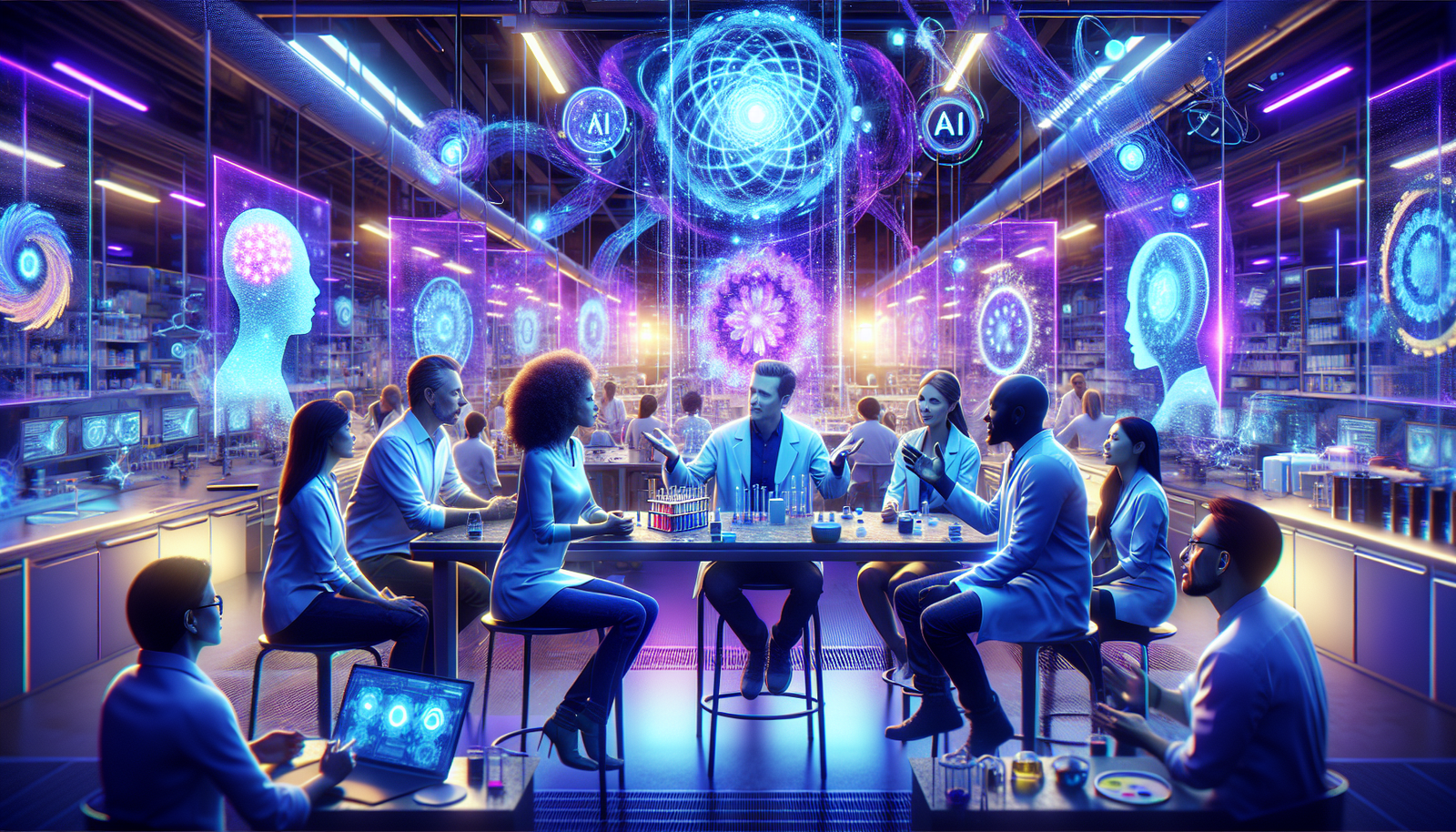The 2024 Nobel Prize in Chemistry honors artificial intelligence, thus revealing its predominant role in contemporary scientific research. This year, the award recognizes pioneers who have integrated AI into the development of new materials and protein analysis. The laureates, David Baker and Demis Hassabis, question the limits of chemical creativity in the face of advanced computing.
The AI, an essential tool for innovation, is shaping our understanding of molecular structures and biological mechanisms. Through this award, the science of chemistry embraces unexplored horizons thanks to a synergy between human creativity and sophisticated algorithms.
The Nobel Prize in Chemistry 2024 was recently awarded to researchers whose work marks a significant advancement in the use of artificial intelligence for chemistry and biology. The jury recognized the contributions of American David Baker and John Jumper, who innovatively integrated AI into protein research. The impact of their discoveries could transform our understanding of complex biological mechanisms.
The role of AI in chemical research
The use of AI for the development of new materials and the study of proteins is strengthening in the context of modern scientific advances. Machine learning algorithms have proven their ability to predict protein structures, a task that traditionally required years of laborious research. Thanks to these methods, researchers can now model and design biomolecules with increased precision.
The Nobel Prize winners
David Baker, director of the Protein Research Institute at the University of Washington, was awarded for his groundbreaking studies on protein design. His colleague, John Jumper, was also recognized for his contributions that integrate AI into complex biological issues. Together, these laureates have illustrated how AI can profoundly change research in chemistry.
The two researchers shared the prize with Demis Hassabis, co-founder of DeepMind, an influential figure in the field of AI. The three laureates have demonstrated exemplary creativity in using machine learning tools to explore protein behaviors. Their work shows that artificial intelligence not only facilitates existing processes; it also offers new perspectives on scientific challenges.
The implications for the future of science
The advances driven by AI promise to transform fields such as medicine and biotechnology. The application of these technologies to better understand the structure and function of proteins could lead to innovative medical treatments and effective therapeutic strategies. The laureates thus illustrate how AI can contribute to revolutionary progress in critical sectors.
Potential applications include sophisticated diagnostic tools and early detection of neurodegenerative diseases. The role of artificial intelligence in biomedical research is expected to grow, redefining how scientists approach major health issues.
Reactions and congratulations
The scientific community has widely praised this award. Researchers from around the world emphasize the importance of recognizing the role of AI in scientific progress. Beyond the laureates, this victory highlights the relevance of advanced technologies in modern chemistry and biology.
This Nobel Prize also reflects a paradigm shift in scientific research. By integrating AI into traditional processes, researchers are paving the way for an era where automation and algorithmic intelligence become indispensable allies in scientific innovation.
A global perspective on AI
The Nobel Prize awarded in 2024 embodies the growing recognition of the importance of artificial intelligence in various scientific fields. The convergence of chemistry, biology, and new technologies heralds exciting prospects for the future of research.
With initiatives such as those from Meta, which unveils advanced AI models for content creation, every increased advancement in this field could resonate in other disciplines. These innovative synergies enhance the potential for collaboration across sectors, thus providing solutions to contemporary challenges.
Frequently Asked Questions
What advancements in artificial intelligence were recognized at the 2024 Nobel Prize in Chemistry?
The 2024 Nobel Prize in Chemistry highlighted the significant contributions of artificial intelligence in the development of new materials and the study of proteins, notably through the work of researchers David Baker and Demis Hassabis.
Why is artificial intelligence a central topic at the 2024 Nobel Prize in Chemistry?
AI plays a crucial role in modern research in chemistry, allowing for the prediction of protein structures and accelerating discoveries, which was acclaimed by the Swedish Academy during this edition.
Who are the winners of the 2024 Nobel Prize in Chemistry and what are their specific contributions?
The winners are David Baker and Demis Hassabis, recognized for their innovative work in protein modeling and the application of machine learning algorithms in chemistry.
How does artificial intelligence improve research in chemistry?
AI enables rapid analysis of large datasets, models complex chemical interactions, and designs new chemical compounds with increased efficiency.
What implications will advances in AI have on future chemical research?
Advancements in AI could transform how researchers approach chemistry, leading to faster discoveries and innovations in fields such as therapeutics and sustainable materials.
What ethical challenges do these advances in artificial intelligence pose in the field of chemistry?
Ethical challenges include algorithm transparency, responsibility for decisions made by AI, and data security issues, which require particular attention as these technologies integrate into scientific research.
How do the winners plan to use their awards to advance AI in chemistry?
They plan to use the Nobel Prize funds to continue their research on AI, develop new machine learning tools, and promote interdisciplinary collaboration to maximize the impact of their findings.






